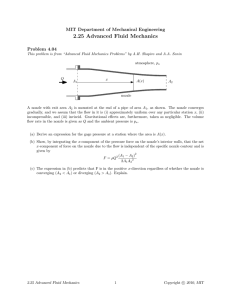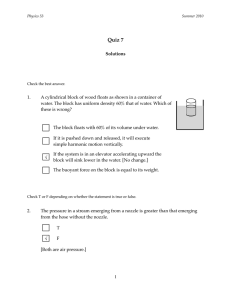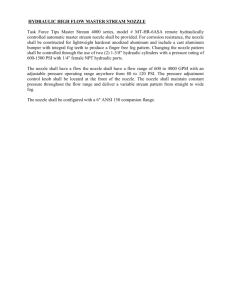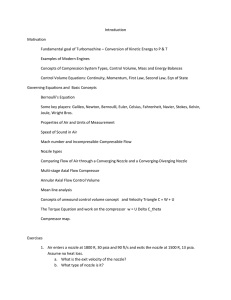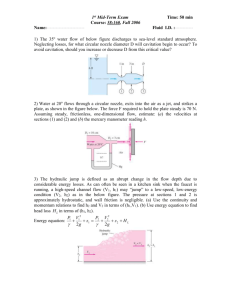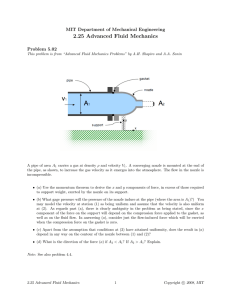Example: Fire Hose Nozzle
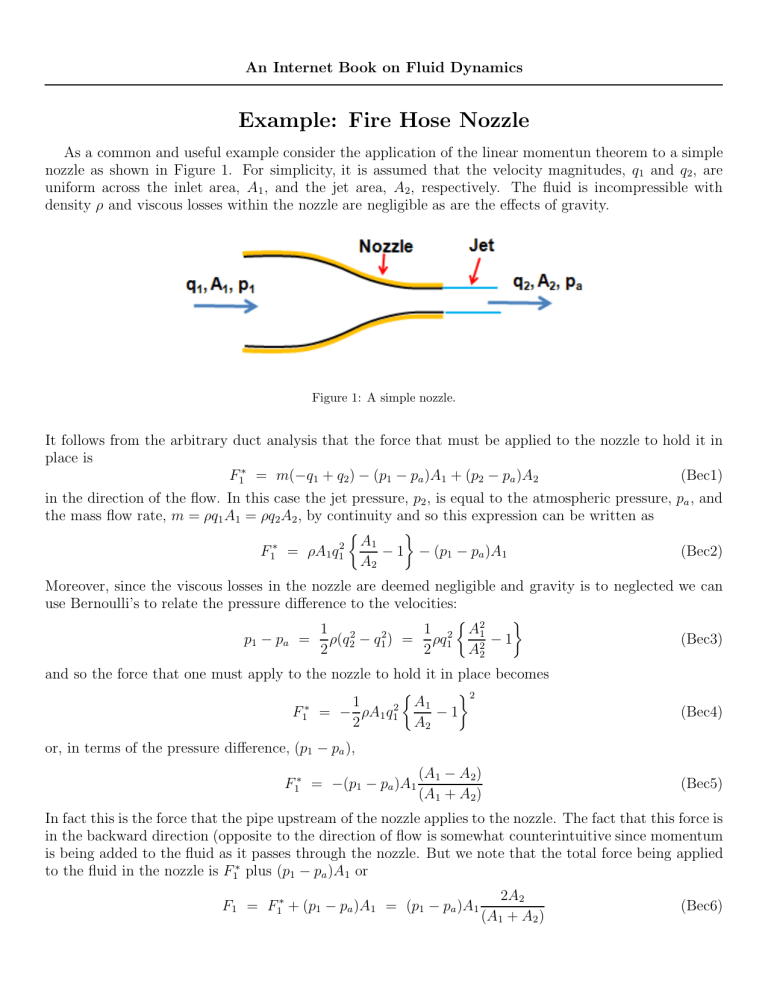
An Internet Book on Fluid Dynamics
Example: Fire Hose Nozzle
As a common and useful example consider the application of the linear momentun theorem to a simple nozzle as shown in Figure 1. For simplicity, it is assumed that the velocity magnitudes,
, and the jet area,
A
2 q
1 and q
2
, are uniform across the inlet area,
A
1
, respectively. The fluid is incompressible with density
ρ and viscous losses within the nozzle are negligible as are the effects of gravity.
Figure 1: A simple nozzle.
It follows from the arbitrary duct analysis that the force that must be applied to the nozzle to hold it in place is
F
1
∗
= m
(
− q
1 + q
2 )
−
( p
1
− p a )
A
1 + ( p
2
− p a )
A
2 (Bec1) in the direction of the flow. In this case the jet pressure, p
2 the mass flow rate, m
=
ρq
1
A
1
=
ρq
2
A
2
, is equal to the atmospheric pressure,
, by continuity and so this expression can be written as p a
, and
F
1
∗
=
ρA
1 q 2
1
A
1
A
2
−
1
−
( p
1
− p a
)
A
1
(Bec2)
Moreover, since the viscous losses in the nozzle are deemed negligible and gravity is to neglected we can use Bernoulli’s to relate the pressure difference to the velocities: p
1
− p a =
1
2
ρ
( q 2
2
− q 2
1
) =
1
2
ρq 2
1
A
A 2
2
−
1 and so the force that one must apply to the nozzle to hold it in place becomes
F
1
∗
=
−
1
2
ρA
1 q 2
1
A
1
A
2
−
1
2 or, in terms of the pressure difference, ( p
1
− p a ),
F
1
∗
=
−
( p
1
− p a
)
A
1
(
A
1
(
A
1
− A
2
+
A
2
)
)
(Bec3)
(Bec4)
(Bec5)
In fact this is the force that the pipe upstream of the nozzle applies to the nozzle. The fact that this force is in the backward direction (opposite to the direction of flow is somewhat counterintuitive since momentum is being added to the fluid as it passes through the nozzle. But we note that the total force being applied to the fluid in the nozzle is
F
1
∗ plus ( p
1
− p a )
A
1 or
F
1
=
F
1
∗
+ ( p
1
− p a
)
A
1
= ( p
1
− p a
)
A
1
(
A
1
2
A
2
+
A
2
)
(Bec6)
which is in the forward direction. A fireman holding a nozzle with a flexible hose must indeed apply this forward force while holding the nozzle in order to prevent it flying backwards. This is seen more clearly in the next example of a fire hose with an upstream bend.
